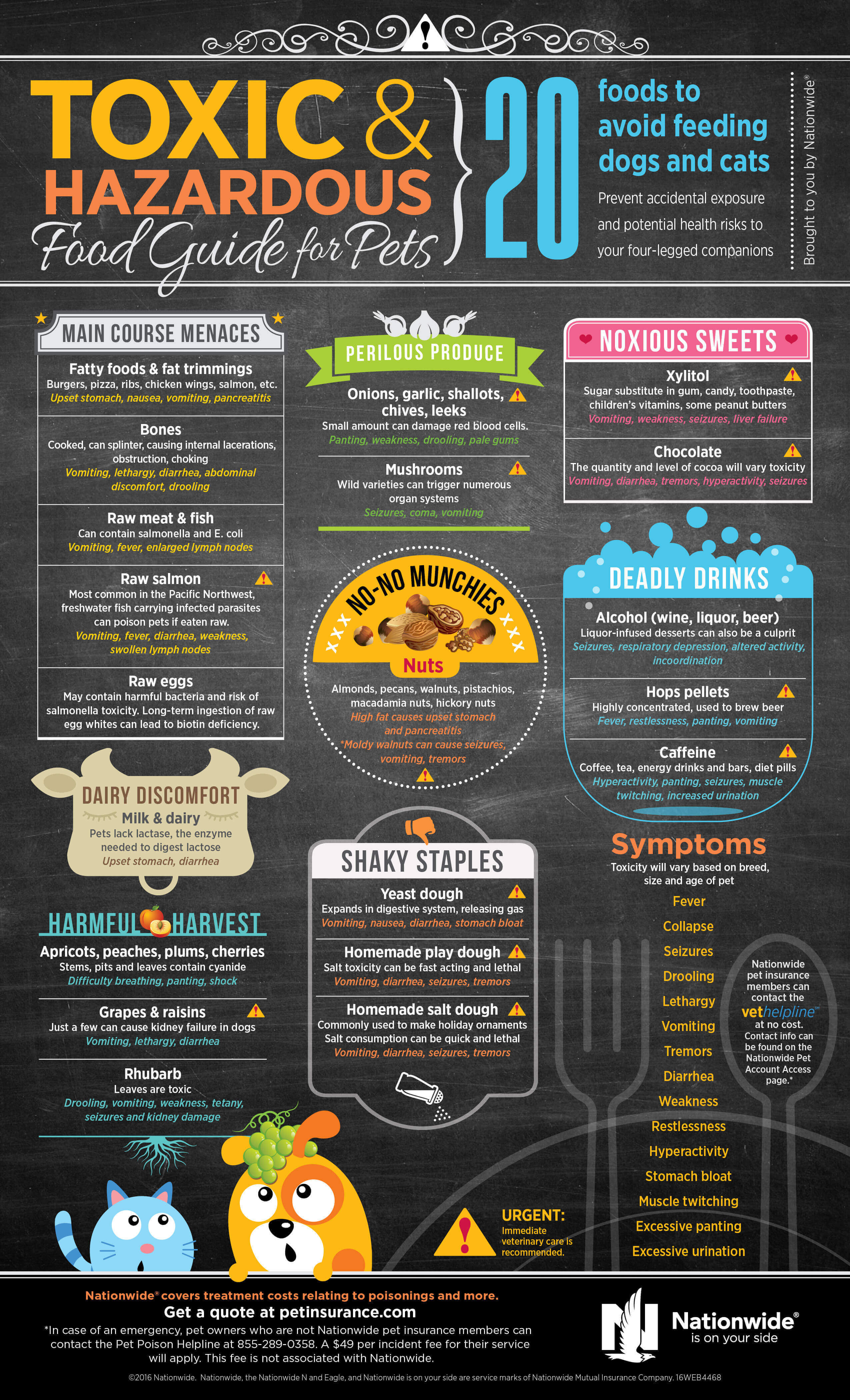Bringing a new pet into your home is an exciting time, but it also comes with the significant responsibility of ensuring their safety and well-being. One of the most crucial aspects of pet care is understanding which human foods are dangerous, and even potentially fatal, for our feline and canine companions. This guide provides essential information on common toxic foods that should be kept out of reach of your pets.
Understanding the Dangers of Human Foods
While it may be tempting to share your meals with your beloved pets, many common human foods contain ingredients that are toxic to cats and dogs. Even small amounts can cause severe health issues, ranging from gastrointestinal upset to organ failure and even death. It’s vital for all pet owners to be aware of these risks to prevent accidental poisoning.
Foods to Absolutely Avoid
- Alcohol: Even small amounts of alcohol can lead to intoxication, gastrointestinal irritation, respiratory distress, coma, and death in pets.
- Avocado: All parts of the avocado contain persin, which can cause vomiting, diarrhea, respiratory distress, and even death in cats and dogs.
- Chocolate: Chocolate contains theobromine, a toxic compound for pets. The darker the chocolate, the more dangerous it is. Symptoms include restlessness, vomiting, diarrhea, increased heart rate, and seizures.
- Coffee, Tea, and Caffeine Products: Caffeine can be fatal to pets in sufficient doses. There is no antidote, and symptoms include restlessness, rapid breathing, and muscle tremors.
- Cooked Bones: Cooked bones can splinter easily, leading to gastrointestinal obstruction or laceration.
- Fat Trimmings: Both cooked and uncooked fat can cause intestinal upset, vomiting, diarrhea, and pancreatitis.
- Grapes, Raisins, Sultanas, and Currants: The toxic substance is unknown, but these can lead to kidney failure in pets.
- Onions, Garlic, and Chives: These alliums can cause gastrointestinal irritation and red blood cell damage, leading to anemia. Garlic and chives are less potent but still dangerous.
- Salt: Excessive salt intake can cause excessive thirst and urination, and even sodium ion poisoning, leading to tremors, elevated body temperature, and seizures.
- Tomatoes and Potatoes: These contain substances that can cause violent gastrointestinal problems.
- Xylitol (Artificial Sweetener): Found in candy, gum, toothpaste, and baked goods, xylitol causes a rapid insulin release, leading to liver failure. Initial signs include vomiting, lethargy, and loss of coordination.
- Yeast Dough: Raw yeast dough can expand in a pet’s digestive system, causing painful gas buildup and potentially rupting the stomach or intestines.
Preventing Accidental Poisoning
The best approach to protecting your pets from toxic foods is to be vigilant. Always store these items securely and never feed them to your pets, even in small quantities. If you suspect your pet has ingested a toxic food, contact your veterinarian or a pet poison control center immediately.
Conclusion
Educating yourself and your family about the dangers of certain human foods is paramount to responsible pet ownership. By keeping toxic items safely away from your cats and dogs, you can prevent serious health issues and ensure they live long, healthy, and happy lives. Always consult with your veterinarian if you have any concerns about your pet’s diet or potential food poisoning.
References
The information on this page was gathered from:

